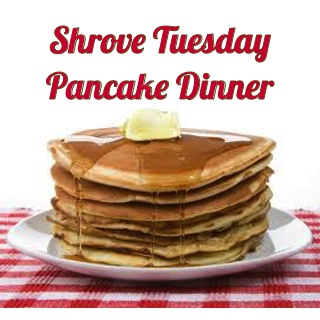Last night I was shocked by the long line at I-HOP until being instructed that it was National Pancake Day, evidently a new holiday. It is of course a secularized version of Shrove Tuesday, which was last evening, and I ideally would have been in a Methodist church fellowship hall eating pancakes, a tradition before Ash Wednesday.
Shrove Tuesday in 1744, 270 years ago, witnessed one of the worst riots against John Wesley and the Methodists. The Wesleyan revivals were often plagued by angry and violent mobs, especially in the early years. These riots were often organized or at least encouraged by gentry or even clergy who resented Methodism’s threat to the liquor and gambling trades, resented the spiritual competition, and resented the empowering influence on the laboring classes. Very often, local law enforcement and governing authorities looked in the other direction, sometimes even encouraging the riot. Sometimes it was the Methodists who were themselves arrested for disturbing the peace. Sometimes newspapers reported the upheaval as “Methodist riots.” Sometimes Methodists were assaulted and/or their houses torn down. Wesley himself was apprehended by many mobs and narrowly escaped death several times, as did his brother Charles.
The day before Shrove Tuessday, 1744, John Wesley journaled:
Here also the storm is begun. Our brethren are violently driven from their place of meeting; pelted in the streets, &c.; and mocked with vain promises of justice by the very men who underhand encourage the rioters. An honest Quaker has hardly restrained some of the brethren from resisting evil; but henceforth, I hope, they will meekly turn the other cheek.
And here’s Wesley’s journal entry for the Shrove Tuesday riot.
Shrove-Tuesday, February 7th. I waked in great heaviness, which continued all day, for our poor suffering brethren; yet with strong confidence that the Lord will appear in their behalf. I joined the Society, at five, in fervent intercession for them; and, in preaching, both administered and received comfort.
I sent my humble thanks to the Mayor for his offer of assistance. He pities our brethren, and would defend them; but who dares do justice to a Christian We are content to wait for it, till the great day of retribution.
At church, the psalms began, “Plead thou my cause, O Lord, with them that strive with me, and fight thou against them that fight against me. Lay hand upon the shield and buckler, and stand up to help me. Bring forth the spear, and stop the way against them that persecute me: say unto my soul, I am thy salvation.” We continued in this prayer with the Society, and had great fellowship with the sufferers.
At the brethren’s desire, I began preaching in the market-place. The holiday folk broke in among the hearers. I gave notice I should preach at the Cross, just by the Mayor’s. In the way, the mob assaulted us with dirt and stones, making us as the filth and offscouring of all things. My soul was caught up, and kept in calm recollection. I knocked at the Mayor’s door: he let me in himself, gave us good words, threatened the rabble, and led me to his fore-door, where the people were waiting. I walked up to the Cross, and called them to repent. They would not receive my testimony; were very outrageous, yet not permitted to hurt me. The Mayor at the same time passed by us laughing. Just such protection I expected!
After fighting with wild beasts for near half-an-hour, I went down into the thickest of them; who started back, and left an open way for me to the Mayor’s house. Mrs. Mayoress led us through her house with great courtesy and compassion. The mob pursued us with stones as before. J. Webb and I were strangers to the town, but went straight forward, and entered an house prepared for us. The woman received us, and shut the door, and spoke with authority to the mob, so that they began to melt away. There the brethren found and conducted us to our friendly Quaker’s. We betook ourselves to prayer for our fellow-sufferers in Staffordshire; who have not been out of our thoughts the whole day.
I expounded the beatitudes, and dwelt upon the last: never have I been more assisted. I rejoiced with our brethren in the fires.
Is there much in Methodism today that is sufficiently challenging and provocative that it would arouse a riot? Or more generically in American Christianity, including the Evangelical world, is there a serious challenge from the nation’s pulpits to the surrounding culture’s mores?
So much in American Christianity today, both liberal and conservative, is marketed to avoid offense and to appeal to soothing sensibilities. The result is often boredom and indifference. In contrast, the Wesleyan revivals were rarely boring. Thousands likely showed up just to watch the excitement. Many of them were converted, including some of the rioters. Wesley explained: “Such is the general method of God’s Providence, where all approve, few profit.”
Who in American Christianity today will, like Wesley, risk disapproval, trusting in Providence, remembering that even as the mobs raged, as they did on Shrove Tuesday, 1744, Methodism grew, and the Gospel prevailed?





Comment by Elizabeth Turner on March 5, 2014 at 9:13 pm
Very interesting way to bring Wesley into our fellowship hall! Thanks for the historical context – and the point that was made.